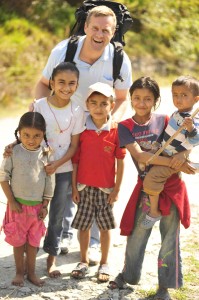 How does the term “social justice” strike you?
How does the term “social justice” strike you?
If you haven’t had a chance to read Timothy Keller’s book, Generous Justice: How God’s Grace Makes Us Just, I would highly recommend it. Below are a few quotes that give you a snapshot of some of what he is writing about. Depending on what circles you run in, the term “social justice” might mean a variety of things. You might be “turned off” by that term, or you might be passionate about it depending on your political or theological bent.
Regardless of your position, Keller’s book seems to approach social justice from a theological rather than sociological viewpoint which is very helpful. Followers of Jesus should never put their head in the sand when it comes to standing up for what is just, right, and fair, and Keller’s book is a helpful primer for thoughtful leaders who want to do just that.
A Personal Case Study in Social Justice
I have often been pressed by skeptics regarding how practical it is to really accomplish our vision to provide youth ministry programs and outdoor adventure opportunities in God’s creation for all young people, even in developing countries. I still stubbornly believe that outdoor adventure is a vital component of what we call full spectrum youth ministry and that every young person should have the opportunity to meet Jesus and grow in their understanding of him through times of quiet and adventure out in his creation. I address this great challenge from a biblically informed perspective on “social justice” in my book, Christian Outdoor Leadership:
The problem of how to offer adventure experiences in the context of poverty requires us to embrace several principles in the developing world: 1) God stands with the poor and so must we in developing a mission model to reach people through outdoor adventure ministries; 2) The Gospel is translatable in every culture, and so our strategy to present the gospel and make disciples must be translatable in poor societies as well; thus we must pursue reproducible ways to provide the highest quality experience at the lowest possible cost; and 3) Equipment and transportation are our two greatest obstacles so we must adopt a strategy that utilizes some already-available technology rather than solely introducing foreign technology. We must adopt a culturally sensitive strategy for equipment use, which I refer to as “local tech.”
Let Your Doubts Surrender to Faith & Let Your Un-budge-able Opinions Be Matured by Healthy Doubts
As you read Keller’s quotes below, and as you consider the theological implications of we commonly refer to as “social justice”, please keep one thing in mind. I find that if you let the Scriptures speak plainly to your soul they will cause your doubting to become tenderized by faith, and they will cause the areas of immature or dogmatic faith to be strengthened by healthy doubting. Or in the words of G.K. Chesterton:
…oddities only strike ordinary people. Oddities do not strike odd people. This is why ordinary people have a much more exciting time; while odd people are always complaining of the dullness of life. -G.K. Chesterton, Orthodoxy
Keller’s book is a breath of fresh air, and will strike you with some “oddities”… i.e. reminders of biblical theology that for some reason are often overlooked especially in highly developed and comfortable cultures. The fact that it struck a tune in my soul gave me hope that maybe I am still “ordinary” as Chesterton describes, i.e. that my heart is not lost in merely personal concerns… Hopefully it can bear similar fruit for you around this topic.
…there is a direct relationship between a person’s grasp and experience of God’s grace, and his or her heart for justice and the poor.
The term for “mercy” is the Hebrew word chesedh, God’s unconditional grace and compassion. The word for “justice” is the Hebrew term mishpat. In Micah 6:8, “mishpat puts the emphasis on the action, chesedh puts it on the attitude [or motive] behind the action.” To walk with God, then, we must do justice, out of merciful love.
Mishpat, then, is giving people what they are due, whether punishment or protection or care.
Over and over again, mishpat describes taking up the care and cause of widows, orphans, immigrants, and the poor—those who have been called “the quartet of the vulnerable.”
God loves and defends those with the least economic and social power, and so should we. That is what it means to “do justice.”Realize, then, how significant it is that the Biblical writers introduce God as “a father to the fatherless, a defender of widows” (Psalm 68:4-5). This is one of the main things he does in the world. He identifies with the powerless, he takes up their cause.
In the Scripture, gifts to the poor are called “acts of righteousness,” as in Matthew 6:1-2. Not giving generously, then, is not stinginess, but unrighteousness, a violation of God’s law.
We do justice when we give all human beings their due as creations of God. Doing justice includes not only the righting of wrongs, but generosity and social concern, especially toward the poor and vulnerable. This kind of life reflects the character of God. It consists of a broad range of activities, from simple fair and honest dealings with people in daily life, to regular, radically generous giving of your time and resources, to activism that seeks to end particular forms of injustice, violence, and oppression.
We should be wary of simply saying, “These things don’t apply anymore,” because the Mosaic laws of social justice are grounded in God’s character, and that never changes.The three causes of poverty, according to the Bible, are oppression, calamity, and personal moral failure.
